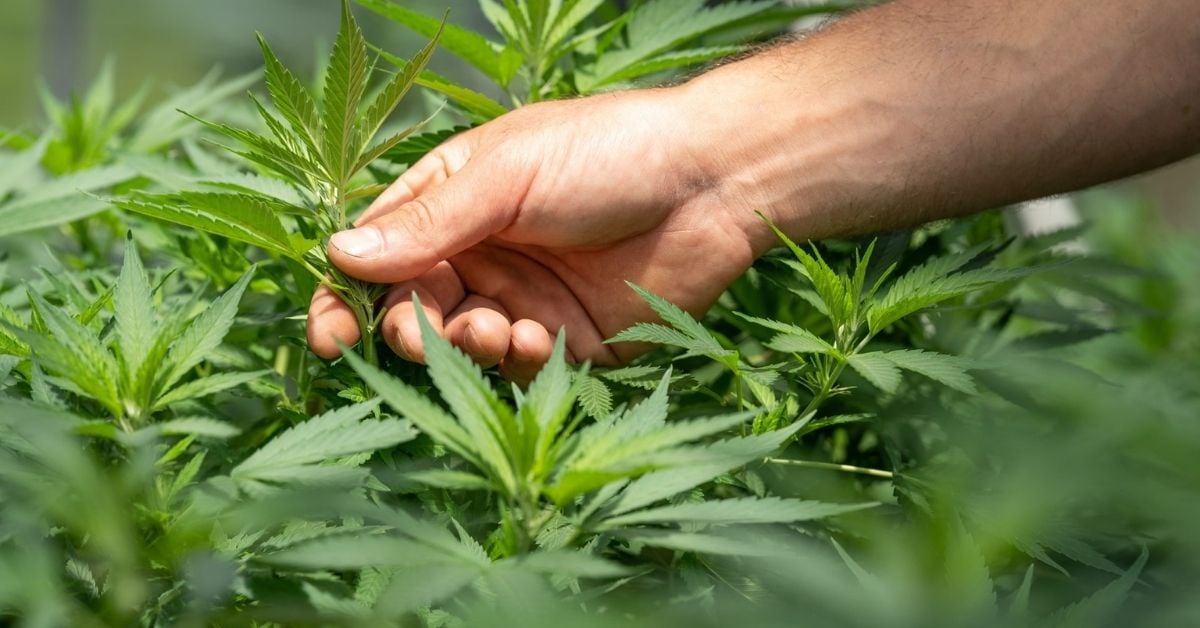Candida is a type of fungus that naturally exists in small amounts in various parts of the body, such as the mouth, gut, and skin. In a balanced state, Candida does not cause harm. However, when an overgrowth occurs, it can lead to various health problems, such as oral thrush, yeast infections, or even systemic candidiasis. Factors such as a weakened immune system, antibiotics, a high-sugar diet, and stress can contribute to an imbalance, allowing Candida to thrive.

Candida overgrowth can result in a range of uncomfortable symptoms, including fatigue, digestive issues, skin rashes, and recurrent infections. Conventional treatment typically involves antifungal medications, dietary changes, and probiotics to restore balance. However, there is growing interest in natural alternatives, such as CBD oil, to support the treatment of Candida.
CBD, or cannabidiol, is a compound derived from the cannabis plant that has shown potential in addressing a wide variety of health issues. Recent studies have highlighted its antifungal properties, which may make it a promising option for managing Candida overgrowth.
The Antifungal Properties of CBD Oil
CBD oil contains active compounds that have demonstrated antifungal effects. The primary components responsible for these properties are cannabinoids, including CBD, and terpenes, which are aromatic compounds found in the cannabis plant. Two particular terpenes, caryophyllene and limonene, have been found to possess potent antifungal properties, making cbd oil for candida a potential aid in fighting fungal infections such as Candida.
One way CBD works against Candida is by disrupting the fungal cell membrane. The cell membrane is crucial for the survival of the fungus, and by interfering with its integrity, CBD can inhibit its growth and proliferation. Additionally, CBD has anti-inflammatory properties that may help alleviate the symptoms associated with Candida overgrowth, such as redness, itching, and discomfort.
Moreover, CBD is known for its ability to interact with the endocannabinoid system (ECS), which plays a vital role in maintaining balance in the body. By modulating the ECS, CBD may help regulate immune responses, potentially making it more effective in fighting off fungal infections and restoring equilibrium in the body.
Potential Benefits of Using CBD for Candida Treatment
CBD oil offers several potential benefits for individuals dealing with Candida overgrowth:
- Natural Antifungal Properties: Unlike conventional antifungal medications, CBD oil provides a natural approach to combat Candida without the risk of developing resistance. Fungal resistance is a common problem with synthetic antifungal drugs, leading to treatment failures in some cases. Using CBD as an adjunct therapy may help reduce this risk.
- Anti-Inflammatory Effects: Candida overgrowth can lead to inflammation in the affected areas, causing pain and discomfort. CBD’s anti-inflammatory properties may help reduce these symptoms and provide relief, making it easier for individuals to manage the condition while following other treatment measures.
- Gut Health Support: The gut is one of the most common sites for Candida overgrowth. CBD has been studied for its potential to improve gut health by regulating immune function and reducing inflammation. A healthy gut is essential for preventing Candida from taking hold and causing symptoms, and CBD may play a role in promoting gut balance.
- Boosting Immune Function: CBD has immunomodulatory effects, meaning it can help balance and support the immune system. Since a weakened immune system is a key factor in Candida overgrowth, using CBD may enhance the body’s natural ability to fight off the fungus and prevent recurrent infections.
How to Use CBD Oil for Candida Treatment
If you’re considering using CBD oil as part of your Candida treatment plan, here are some tips to keep in mind:
- Choose a High-Quality Product: Look for CBD oil from reputable brands that use third-party testing to verify potency and purity. Full-spectrum CBD oil is often recommended for Candida treatment, as it contains additional cannabinoids and terpenes that may enhance its antifungal properties.
- Start with a Low Dose: When using CBD for the first time, start with a low dose and gradually increase it as needed. This allows you to monitor your body’s response and find the most effective dose for your needs.
- Use Consistently: For the best results, use CBD oil consistently as part of your daily routine. Consistency is key when managing conditions like Candida, as it allows the active compounds in CBD to build up in your system and provide more effective relief.
- Combine with Other Treatments: CBD oil may be used alongside other treatment measures, such as dietary changes, probiotics, and antifungal medications. Consult with a healthcare professional to ensure that CBD is safe for you to use and to develop a comprehensive treatment plan that addresses the root causes of Candida overgrowth.

Conclusion: Can CBD Oil Be Effective for Candida Treatment?
The antifungal properties of CBD oil, combined with its anti-inflammatory and immune-supporting effects, make it a promising natural remedy for those dealing with Candida overgrowth. While more research is needed to fully understand its efficacy, early studies and anecdotal evidence suggest that CBD may help inhibit fungal growth, reduce inflammation, and support overall immune function.
If you’re considering using CBD oil for Candida treatment, it’s essential to consult with a healthcare professional to ensure that it’s the right choice for your specific situation. By combining CBD with other treatment measures and maintaining a balanced lifestyle, you may find relief from the symptoms of Candida and support your body’s ability to maintain a healthy balance.
- Starburst Slot in 2025: Why This Classic Game Still Shines Bright - January 29, 2025
- Exploring the Antifungal Properties of CBD Oil for Candida Treatment - October 2, 2024
- Poker Bankroll Management: Staying in the Game - September 12, 2024